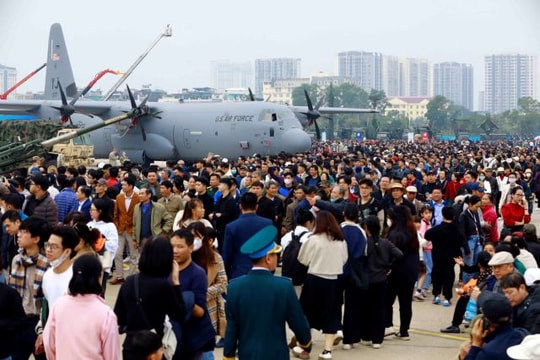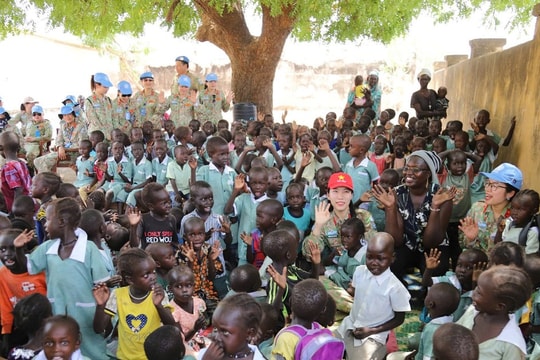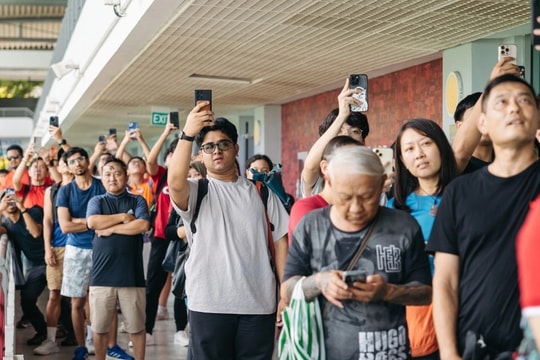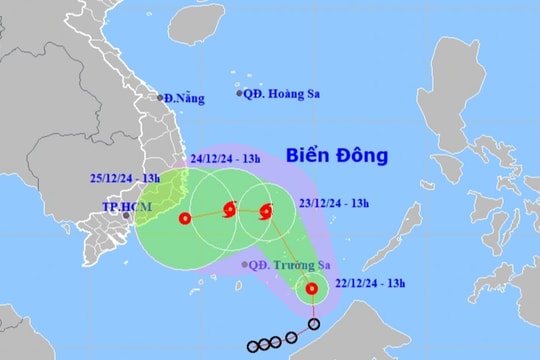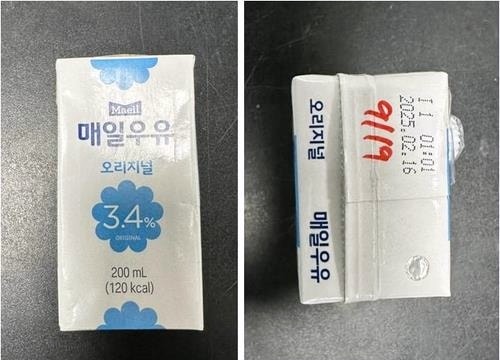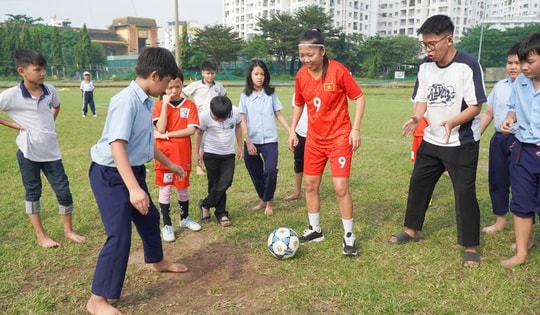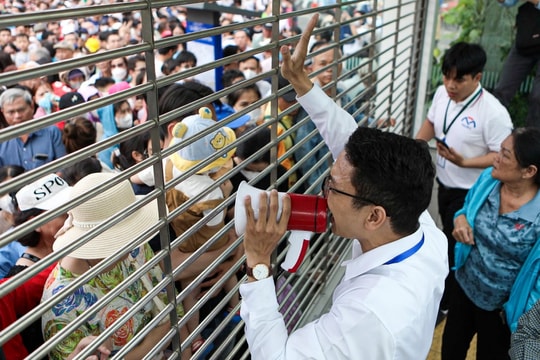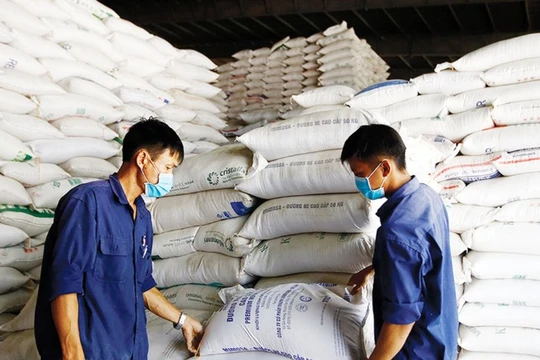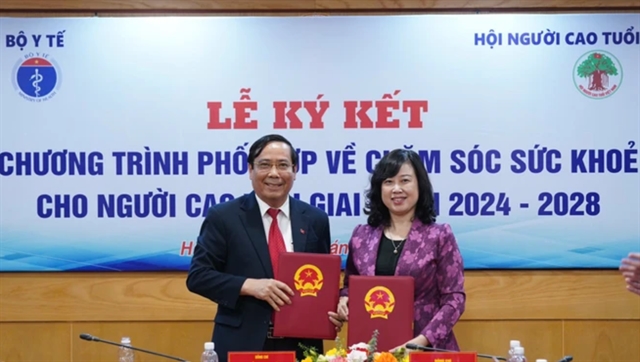 |
| Minister of Health Đào Hồng Lan (right) and Nguyễn Thanh Bình, head of the Việt Nam Association of the Elderly at the signing ceremony on Thursday.—VNA/VNS Photo |
HÀ NỘI — Elderly individuals must be ensured access and benefits from quality healthcare services.
Seniors must be empowered to actively participate in health and care for themselves, their families and their communities.
These are major focuses of the Cooperative Programme for Elderly Healthcare for the 2024 – 2028 period that was signed on Thursday by the Ministry of Health and the Việt Nam Association of the Elderly.
The programme, outlining activities related to healthcare for seniors over the next five years, aims to enhance the implementation of policies and legislation as well as objectives, tasks and solutions pertaining to improving the care and health of the elderly.
The programme is particularly vital as the country faces rapid population ageing.
The cooperative programme sets forth numerous initiatives for diagnosing and treating health issues among the elderly, providing healthcare services and arranging inpatient beds along with dedicated examination rooms for seniors within medical facilities.
Hospitals are encouraged to establish geriatric departments when they meet the necessary standards for infrastructure, medical equipment and personnel.
The integration of traditional medicine with modern healthcare practices will also be promoted, along with guidance on non-pharmacological treatment methods at grassroots healthcare levels for elderly patients.
The programme will also support the establishment and implementation of the humanitarian initiative 'Bright eyes for the elderly.'
Regular health check-ups will be organised at least once a year, with health records maintained for seniors.
There will also be counselling and rehabilitation guidance for the elderly following acute hospital treatments as well as home care provisions.
Developing community-based health care models for the elderly will be a priority.
The cooperative programme will also focus on raising awareness and providing guidance to seniors on the use of herbal medicine for the prevention and treatment of common ailments at home, thus preserving traditional remedies.
Health clubs for the elderly will be established and the effectiveness of intergenerational self-help clubs, wellness clubs, outdoor health clubs and other senior clubs will be enhanced.
A network of volunteer rehabilitation and healthcare providers for the elderly will be organised, particularly for those who are impoverished or facing difficult circumstances.
Speaking at the signing ceremony, Minister of Health Đào Hồng Lan said significant achievements in public health, particularly in the care of the elderly, have contributed to enhancing the quality of life for citizens.
The ministry appreciated the collaboration of the Việt Nam Association of the Elderly in advising on and implementing policies and programmes for public health, particularly concerning the elderly.
With increasing life expectancy and declining birth rates, Viêt Nam was projected to be one of the fastest ageing countries in the world, expected to reach an aged population status by 2038.
“This means Việt Nam has approximately 15 years to prepare for this demographic shift,” she said.
The rapid ageing process presents substantial challenges for social security, employment, transportation, recreation and the healthcare system for the elderly in our country.
The Party and State have consistently prioritised the care and enhancement of health for the elderly, enacting numerous policies, strategies and programmes to support their well-being.— VNS







